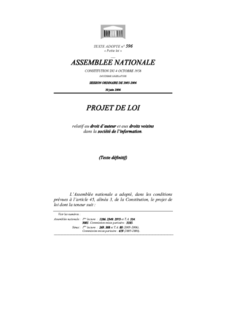The Platform Equality and Remedies for Rights Holders in Music Act of 2007, also known as simply the Perform Act of 2007 [1] and sometimes written as PERFORM Act [2] was a bill introduced January 11, 2007 in the 110th Congress by Dianne Feinstein (California-D) and sponsored by Lindsey Graham (South Carolina-R), Joe Biden (Delaware-D), and Lamar Alexander (Tennessee-R) to the United States Senate as S. 256. [1] It superseded the Platform Equality and Remedies for Rights Holders in Music Act of 2006. [3]

Dianne Goldman Berman Feinstein is an American politician serving as the senior United States Senator from California. She took office on November 4, 1992. A member of the Democratic Party, Feinstein was Mayor of San Francisco from 1978 to 1988.

California is a state in the Pacific Region of the United States. With 39.6 million residents across a total area of about 163,696 square miles (423,970 km2), California is the most populous U.S. state and the third-largest by area. The state capital is Sacramento. The Greater Los Angeles Area and the San Francisco Bay Area are the nation's second- and fifth-most populous urban regions, with 18.7 million and 9.7 million residents respectively. Los Angeles is California's most populous city, and the country's second-most populous, after New York City. California also has the nation's most populous county, Los Angeles County, and its largest county by area, San Bernardino County. The City and County of San Francisco is both the country's second-most densely populated major city after New York City and the fifth-most densely populated county, behind only four of the five New York City boroughs.

The Democratic Party is one of the two major contemporary political parties in the United States, along with its main rival, the Republican Party. Tracing its heritage back to Thomas Jefferson and James Madison's Democratic-Republican Party, the modern-day Democratic Party was founded around 1828 by supporters of Andrew Jackson, making it the world's oldest active political party.
Contents
If this bill had become law, it would have required the implementation of DRM protections and restrictions on digital audio transmissions, including those over the Internet (Internet radio) and XM Satellite Radio. It would also have required services to pay "fair market value" [1] [4] for copyrighted materials, as well, amending other laws to make this possible. In addition, recording devices would have been barred from disambiguating songs in audio streams. The act would have given consumers the explicit right to make "reasonable" recordings at home, for their own use, and to transfer those recordings to other computers within their home for playback.

Law is a system of rules that are created and enforced through social or governmental institutions to regulate behavior. It has been defined both as "the science of justice" and "the art of justice". Law regulates and ensures that individuals or a community adhere to the will of the state. State-enforced laws can be made by a collective legislature or by a single legislator, resulting in statutes, by the executive through decrees and regulations, or established by judges through precedent, normally in common law jurisdictions. Private individuals can create legally binding contracts, including arbitration agreements that may elect to accept alternative arbitration to the normal court process. The formation of laws themselves may be influenced by a constitution, written or tacit, and the rights encoded therein. The law shapes politics, economics, history and society in various ways and serves as a mediator of relations between people.

Digital audio is sound that has been recorded in, or converted into, digital form. In digital audio, the sound wave of the audio signal is encoded as numerical samples in continuous sequence. For example, in CD audio, samples are taken 44100 times per second each with 16 bit sample depth. Digital audio is also the name for the entire technology of sound recording and reproduction using audio signals that have been encoded in digital form. Following significant advances in digital audio technology during the 1970s, it gradually replaced analog audio technology in many areas of audio engineering and telecommunications in the 1990s and 2000s.

The Internet is the global system of interconnected computer networks that use the Internet protocol suite (TCP/IP) to link devices worldwide. It is a network of networks that consists of private, public, academic, business, and government networks of local to global scope, linked by a broad array of electronic, wireless, and optical networking technologies. The Internet carries a vast range of information resources and services, such as the inter-linked hypertext documents and applications of the World Wide Web (WWW), electronic mail, telephony, and file sharing.



